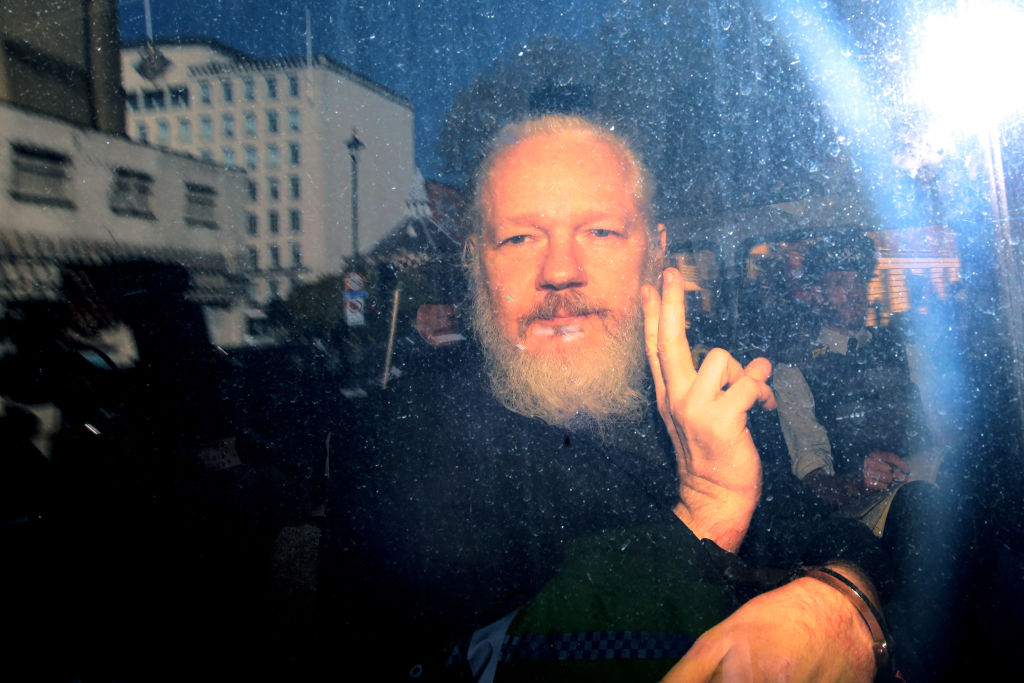Lord Palmerston apparently said of the 19th century diplomatic tangle, the Schleswig-Holstein Question, that only three people had ever understood it — one was dead, another had gone mad, and the third, Palmerston himself, had forgotten it.
So it seems with Julian Assange, who today won his request for an appeal hearing in his US extradition case. Peer dimly back into the mists of time, to 2010, and it is possible to discern a sexual assault allegation in Sweden that was later withdrawn, but which formed sufficient grounds to have him put under house arrest in England.
After time spent in the Ecuadorian embassy and then HMP Belmarsh, there have been years of appeals and counters-appeals, all hinging on whether, finally, Assange will end up in a US court. There he could be charged with spying under the 1917 Espionage Act, for an act that was performed in Britain by an Australian citizen.
Today concerned part of a different counter-appeal by Assange’s legal team. They had set out nine grounds as to why he should stay in Britain and three of these have now been upheld, if only temporarily. A new court date has been set for 20 May, when US authorities will have to provide evidence as to why those three reasons don’t apply. Firstly, that he will be able to use a First Amendment free speech defence; secondly, that there is no chance he will be put to death; and lastly, that he will not be placed in a particularly tough prison environment.
Given that all three seem eminently doable, the way will once again be cleared for Assange to meet his fate in a US courtroom, which could amount to as much as 175 years in prison. American authorities maintain it would be closer to six. Yet, 15 years since he first sparked the State Department’s ire, the question of what justice means, and what Assange even did, seems increasingly lost not only on the public but on the authorities themselves. There is a kind of muscle memory in the system, the locked jaws of a deep state that just will not let go, forever doubling down on the losses it took.
Assange embarrassed the Pentagon and put his head so far above the parapet that he began a blood feud with the CIA. The questions that WikiLeaks threw up relate back to the White House of George W. Bush and the early Obama years. Few can remember many of the specifics, and the world has turned. But in terms of ending this infinite saga, there is no choreography being suggested that would allow for the authorities to save face.
Without that, the show must go on. And the longer it goes on, the more the public gets the sense that the system has its targets. That justice might be blind in the courtroom, sure, but outside of it the US security apparatus is behaving as capriciously as Assange always suggested it did.
Our touchingly Nineties faith in the decency of our legal system is being tested. There have been other dots along the road that have given credence to this mood. The January 6 riots, for instance, illustrated quite how much book there is to throw at people if desired: 22-year sentences for someone who wasn’t even at the Capitol.
See also: the many legal troubles of Donald Trump. In New York, the former president is charged with exaggerating his asset base when taking out a loan that he long since paid back without issue. As with Britain’s novel hate speech codes, what gets to court — and how intent the authorities are to follow through — is what counts.
In hindsight, Assange was an early case in this modern phenomenon. At the time, he was a crowd-splitter. But the longer this has dragged on, the more the anti-Assange types have melted away.
Increasingly, his case is a cause célèbre that isn’t even about “free speech” or “journalistic integrity”, as his supporters loftily claim. It’s about sticking sand in the gears of a power system whose slip is showing. The question becomes not the Schleswig-Holstein version: “Does anyone remember what he did?” These days, it’s resolving into a crisper, more emotive thing: “Why are they so obsessed with him?”











Join the discussion
Join like minded readers that support our journalism by becoming a paid subscriber
To join the discussion in the comments, become a paid subscriber.
Join like minded readers that support our journalism, read unlimited articles and enjoy other subscriber-only benefits.
Subscribe